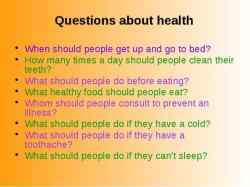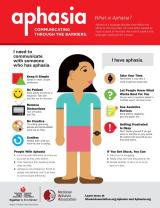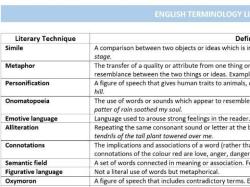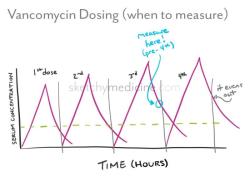What you must know about homeopathic remedies?
Homeopathic remedies are a fundamental component of homeopathy, a complementary and alternative system of medicine that uses highly diluted substances to stimulate the body's natural healing processes. If you are considering using homeopathic remedies or learning more about them, here is some essential information to keep in mind:
Principle of Similars (Like Cures Like):
- Homeopathy is based on the principle of "like cures like." This means that a substance that can produce symptoms in a healthy person can be used to treat similar symptoms in a person who is ill. Remedies are chosen based on symptom patterns and similarities between the substance's effects and the patient's symptoms.
High Dilution:
- Homeopathic remedies are highly diluted substances. The dilution process involves serial dilution and succussion (vigorous shaking) at each step. This process is believed to enhance the remedy's effectiveness while minimizing potential side effects.
Individualized Treatment:
- Homeopathic treatment is highly individualized. Practitioners consider the unique symptoms and characteristics of each patient when selecting remedies. Two individuals with the same medical condition may receive different homeopathic remedies based on their specific symptoms and constitution.
Safety:
- Homeopathic remedies are generally considered safe when used according to the principles of homeopathy. They are highly diluted, which means they contain minimal to no measurable amounts of the original substance. As a result, they are often regarded as non-toxic and non-habit forming.
Regulation and Quality:
- The regulation of homeopathic remedies varies by country. In some regions, they are classified as over-the-counter medicines, while in others, they are considered dietary supplements. Quality control standards for homeopathic remedies also vary, so it's important to purchase products from reputable manufacturers.
Evidence and Controversy:
- The effectiveness of homeopathic remedies is a subject of controversy. Many scientific reviews and meta-analyses have found limited evidence to support their efficacy beyond that of a placebo effect. Critics argue that any perceived benefits of homeopathic remedies are likely due to the placebo effect or the natural course of an illness.
Integration with Conventional Medicine:
- Homeopathy is often used as a complementary or alternative therapy alongside conventional medicine. It's essential to communicate with your healthcare provider if you are using homeopathic remedies, especially if you have a serious medical condition.
Treatment for Specific Conditions:
- Homeopathic remedies are commonly used for a wide range of conditions, including respiratory problems, digestive issues, musculoskeletal disorders, emotional and mental health concerns, and more. Some people also use homeopathy for prevention and general well-being.
Consulting a Homeopathic Practitioner:
- If you are interested in homeopathic treatment, it is advisable to consult a qualified and experienced homeopathic practitioner. They can assess your health, recommend specific remedies, and monitor your progress.
Integration with Lifestyle and Diet:
- Homeopathic practitioners often consider lifestyle factors, dietary habits, and emotional well-being as part of holistic treatment. Lifestyle modifications and dietary recommendations may be included in a treatment plan.
Remember that while some individuals report positive experiences with homeopathic remedies, their effectiveness remains a topic of debate in the medical and scientific communities. It's essential to maintain open communication with your healthcare provider and make informed decisions about your health and treatment options. Homeopathy should not be used as a substitute for evidence-based medical care, particularly in cases of serious illness or emergencies.
Treating illnesses with homeopathy: What you need to know
Homeopathy is a system of alternative medicine that was created in the late 18th century by Samuel Hahnemann. Homeopathy is based on the principle of "like cures like," which means that substances that cause certain symptoms in healthy people can also be used to treat those symptoms in sick people.
Homeopathic remedies are made from very dilute amounts of natural substances, such as plants, minerals, and animals. Homeopaths believe that these remedies can stimulate the body's natural healing response.
Homeopathy is a popular form of alternative medicine in many parts of the world. However, it is important to note that there is no scientific evidence to support the effectiveness of homeopathy for the treatment of any illness.
Homeopathy for health: Which ailments can it address?
Homeopaths claim that homeopathy can be used to treat a wide range of ailments, including:
- Allergies
- Asthma
- Arthritis
- Cold and flu
- Depression
- Digestive problems
- Headaches
- Migraines
- Skin conditions
- Stress
- Women's health problems
Natural healing with homeopathy: Conditions treated by this approach
While there is no scientific evidence to support the effectiveness of homeopathy for the treatment of any illness, some people may find that homeopathic remedies help to relieve their symptoms.
If you are considering using homeopathy to treat a health condition, it is important to talk to your doctor first. Your doctor can help you to decide if homeopathy is right for you and can advise you on how to use homeopathic remedies safely.
Here are some things to keep in mind about homeopathy:
- Homeopathic remedies are very dilute, so they are generally safe to use. However, it is important to talk to your doctor before using homeopathy, especially if you are pregnant, breastfeeding, or taking any other medications.
- Homeopathic remedies should not be used to replace conventional medical treatment for serious illnesses.
- Homeopathy is not a cure-all. It may not be effective for everyone and may not work for all conditions.
If you are experiencing any health problems, it is important to see a doctor to get a diagnosis and treatment plan.













